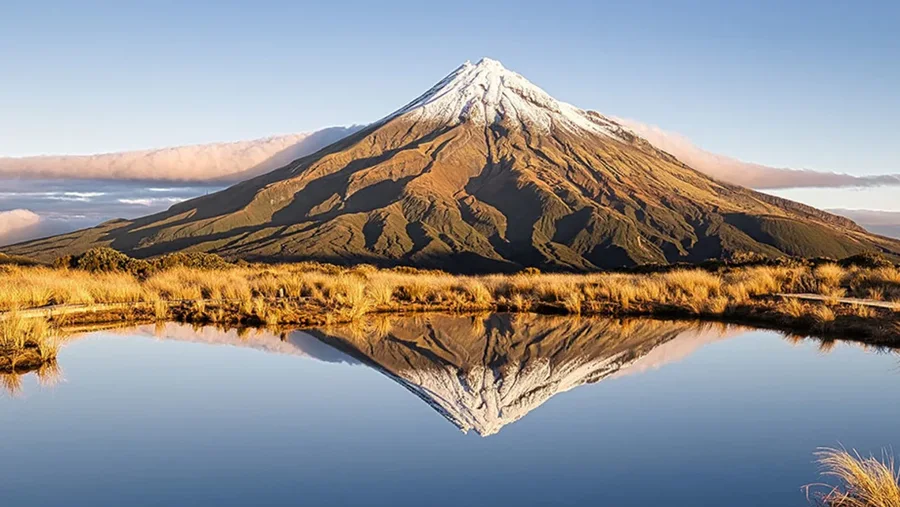
One of New Zealand's most iconic mountains, Taranaki Maunga, now has legal status as a person. The historic development comes after a new law was passed that gives the mountain all the rights and responsibilities of a human being. The decision represents a significant step in recognising the rights of the indigenous Maori people and protecting the natural environment.
A symbolic and legal recognition
The new law describes Taranaki Maunga as a “living and indivisible being.” This status means the mountain has legal rights and can be protected by its legal representatives, who are four members elected by the Maori tribes and four others appointed by the Ministry of Environmental Conservation.
The history of Taranaki Maunga and its connection to the Maori
For the Maori, the mountain has always been a revered ancestor, a source of cultural and spiritual inspiration, and a sacred place. However, after the colonization of New Zealand by the British, the Maori were deprived of their right to the mountain and the surrounding lands.
In 1770, British explorer James Cook named the mountain “Mount Egmont,” displacing the Maori name. In 1865, the colonial government confiscated much of the land in the Taranaki region to punish the Maori for their resistance to British rule. This land grab was one of many violations of the Treaty of Waitangi, which was supposed to protect Maori rights.
A step towards historical justice
The passage of legislation to recognise the mountain's legal status is part of the process of redressing past wrongs. This legislation ensures that Taranaki Maunga is preserved and protected as an independent entity, managed according to Maori traditions and environmental conservation principles.
Why is this decision important?
This legal recognition not only increases respect for the Māori people and their culture, but also serves as a model for nature conservation. By having legal rights, the mountain can be protected from activities that could harm its ecosystem, such as industrial development or the sale of its land for economic gain.
The public will continue to visit the mountain, but now with an approach that respects its cultural and environmental values. The law also means a return to traditional Maori practices in the management of the area, allowing for better protection of biodiversity.
Similar practices in New Zealand
New Zealand has been a pioneer in legally recognizing nature as a legal entity. In 2014, the Te Urewera Forest was granted legal personhood, moving from state ownership to a model that manages it jointly with the Tūhœe Māori people. The Whanganui River was also declared a legal person in 2017.
The Taranaki Maunga Act was passed unanimously by the New Zealand Parliament, with 123 votes in favour. This unanimity reflects broad support for historical justice and environmental conservation. After the vote was announced, dozens of Maori representatives who had travelled from Taranaki to Wellington celebrated with a waiata (traditional Maori song). (A2 Televizion)











